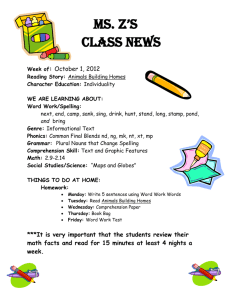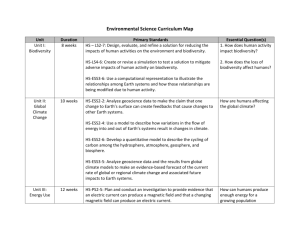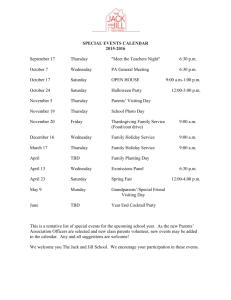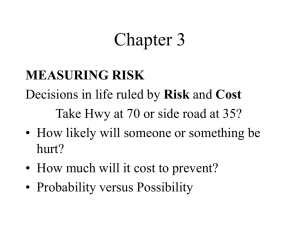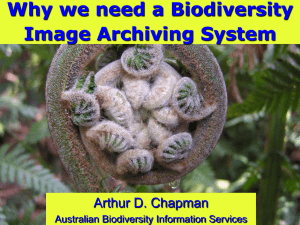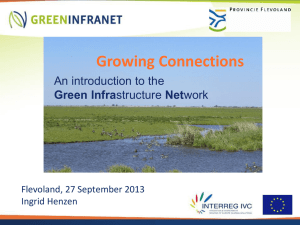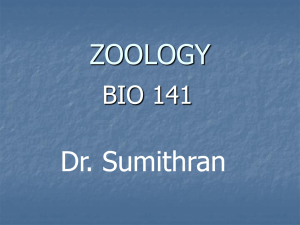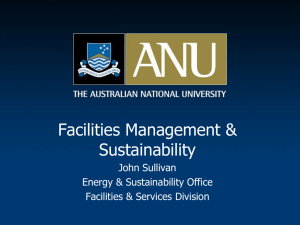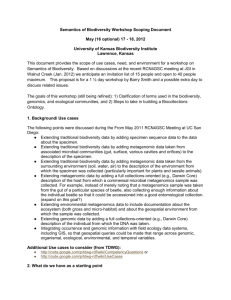Agenda
advertisement
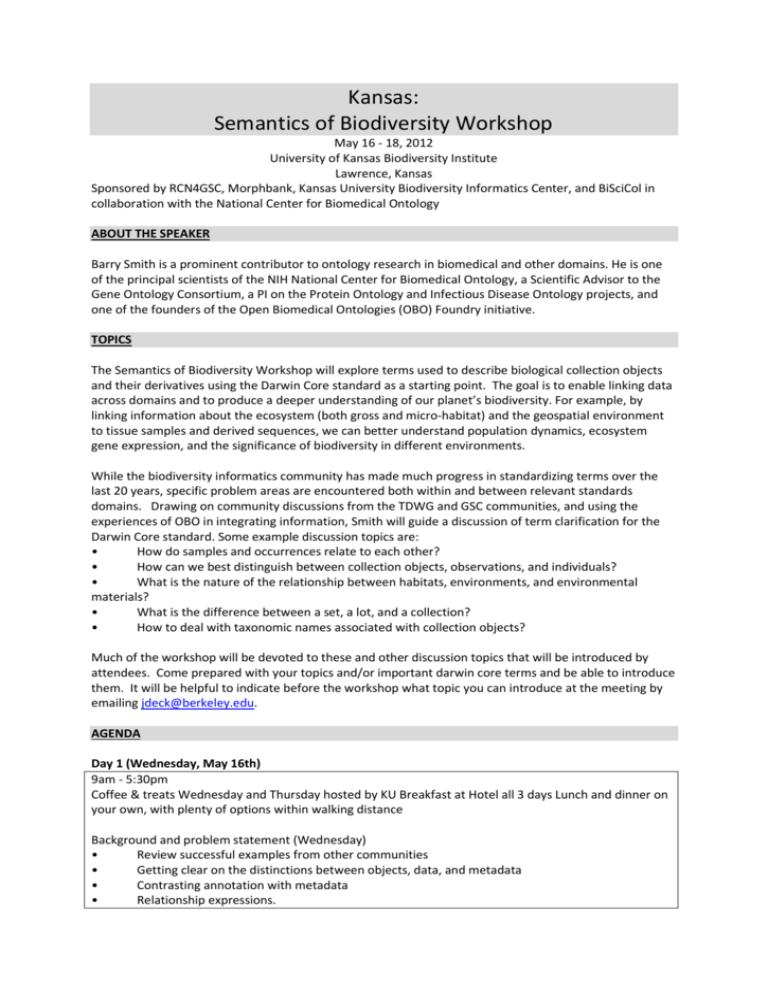
Kansas: Semantics of Biodiversity Workshop May 16 - 18, 2012 University of Kansas Biodiversity Institute Lawrence, Kansas Sponsored by RCN4GSC, Morphbank, Kansas University Biodiversity Informatics Center, and BiSciCol in collaboration with the National Center for Biomedical Ontology ABOUT THE SPEAKER Barry Smith is a prominent contributor to ontology research in biomedical and other domains. He is one of the principal scientists of the NIH National Center for Biomedical Ontology, a Scientific Advisor to the Gene Ontology Consortium, a PI on the Protein Ontology and Infectious Disease Ontology projects, and one of the founders of the Open Biomedical Ontologies (OBO) Foundry initiative. TOPICS The Semantics of Biodiversity Workshop will explore terms used to describe biological collection objects and their derivatives using the Darwin Core standard as a starting point. The goal is to enable linking data across domains and to produce a deeper understanding of our planet’s biodiversity. For example, by linking information about the ecosystem (both gross and micro-habitat) and the geospatial environment to tissue samples and derived sequences, we can better understand population dynamics, ecosystem gene expression, and the significance of biodiversity in different environments. While the biodiversity informatics community has made much progress in standardizing terms over the last 20 years, specific problem areas are encountered both within and between relevant standards domains. Drawing on community discussions from the TDWG and GSC communities, and using the experiences of OBO in integrating information, Smith will guide a discussion of term clarification for the Darwin Core standard. Some example discussion topics are: • How do samples and occurrences relate to each other? • How can we best distinguish between collection objects, observations, and individuals? • What is the nature of the relationship between habitats, environments, and environmental materials? • What is the difference between a set, a lot, and a collection? • How to deal with taxonomic names associated with collection objects? Much of the workshop will be devoted to these and other discussion topics that will be introduced by attendees. Come prepared with your topics and/or important darwin core terms and be able to introduce them. It will be helpful to indicate before the workshop what topic you can introduce at the meeting by emailing jdeck@berkeley.edu. AGENDA Day 1 (Wednesday, May 16th) 9am - 5:30pm Coffee & treats Wednesday and Thursday hosted by KU Breakfast at Hotel all 3 days Lunch and dinner on your own, with plenty of options within walking distance Background and problem statement (Wednesday) • Review successful examples from other communities • Getting clear on the distinctions between objects, data, and metadata • Contrasting annotation with metadata • Relationship expressions. • Tracking Identifiers to refer to objects or classes uniquely. Applying ontological principles to our subject domain (Wednesday and Thursday) • Interactive review of 10 or so of the most important Darwin core terms from the ground up. Participants will be describing terms and the intention behind their original formation. Come prepared to discuss your term(s) of interest. 6pm- 7:30pm Reception hosted by Kansas University’s Biodiversity Institute Day 2 (Thursday, May 17th) 9am - 5:30pm Solutions for the future (Thursday) • Enabling linked data • Pitfalls, traps, and planning • Creating a sociology so people can re-use ontologies Planning the 3rd Day discussions (4-5:30pm on Thursday) • Barry will be departing at 4pm on Thursday and so we will use the remainder of day to plan our discussion for Friday. Day 3 (Friday, May 19th) 9am - Noon We will be collecting discussion topics on Thursday afternoon for our Friday discussion. Some possible topics include: • Develop concrete proposals for Darwin Core term clarification • Do we need a new namespace for Darwin Core (for enforcing URIs)? • Implications for MIxS Standard • Implications for the Darwin Core Archive Format • Recommendations to the TDWG-RDF Group
